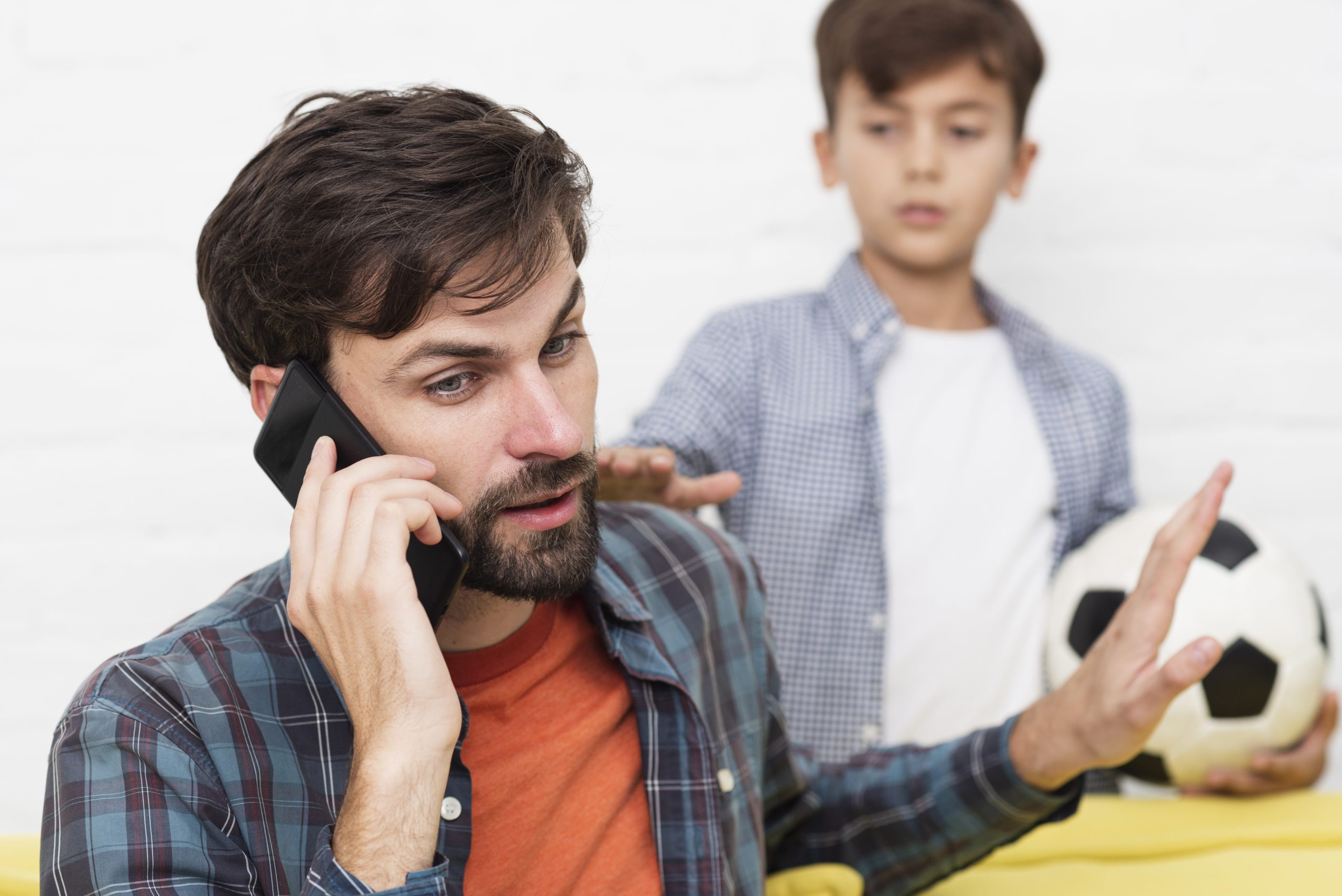This is a coinage made from two words: “phone” (telephone) and “snubbing” (to ignore), which describes the situation when people neglect or ignore the individuals in their company, consciously choosing to look at their phone instead.
Although “phubbing” seems like harmless behavior, it actually often negatively affects children, mistakenly shaping their understanding of social interactions, healthy relationships, and attention.
According to a recent study, children whose parents are phubbing have developed high social anxiety and low self-control. Additionally, research has shown that a large number of children feel rejected and neglected.
It is important to emphasize – using a phone in the presence of children is not bad itself, and it is not considered phubbing. When we talk about phubbing, we mean looking at the phone while someone is talking to us or while we are eating together, which makes us feel rejected, as if we are not interesting or important enough.
What are the consequences of phubbing?
When children do not feel an emotional connection with their parents, due to their excessive, constant, and uncontrolled focus on the mobile phone, children will seek it elsewhere. As children learn by model, they will seek the compensation for the lack of acceptance and attention in the phone or on the internet. Rohner, R. P. (2004) Some children will seek acceptance in likes, some in talking to strangers online, and some in exceptional results in video games.
In the long run, children who are victims of phubbing will start to struggle with issues related to self-esteem, self-control, and social skills, such as establishing and maintaining normal interaction.
Of course, children who have been phubbed themselves become phubbers, which can significantly affect their integration into society, making and maintaining friendships, and later emotional relationships. Scattered attention also poses a great danger to academic success.
What can we do to reduce the negative effect of mobile phones?
Choose activities during which the phone is not used
For example, during a meal together or when watching a series or movie as a family. Make these rules taht apply to both children and adults.
Parents as an example
Children learn by model, so show them what moderate and healthy phone usage looks like. Studies have shown that children whose parents are not constantly on the phone have better self-control when it comes to device use.
Technology-free rooms
A great trick is also to introduce a rule that there are no mobile phones in the bedroom if someone is under 18 years old. This way, you not only reduce the likelihood of the child getting used to falling asleep with the phone, and developing a phone addiction, but you also reduce the harmful impact of the phone’s “blue light” on children’s sleep.
Introduce mandatory conversations that exclude the use of technology
Set aside 15 minutes a day for your child to tell you what they did at school. Also, you can set aside an hour to do something with your child that they enjoy, whether it’s playing video games, putting together a puzzle, or reading. This way, you are giving your child the necessary attention, love, and appreciation.
Timea Kukla
sources:
https://www.frontiersin.org/articles/10.3389/fpsyg.2023.1157209/full
https://www.frontiersin.org/articles/10.3389/fpsyg.2023.1117221/full#B54


